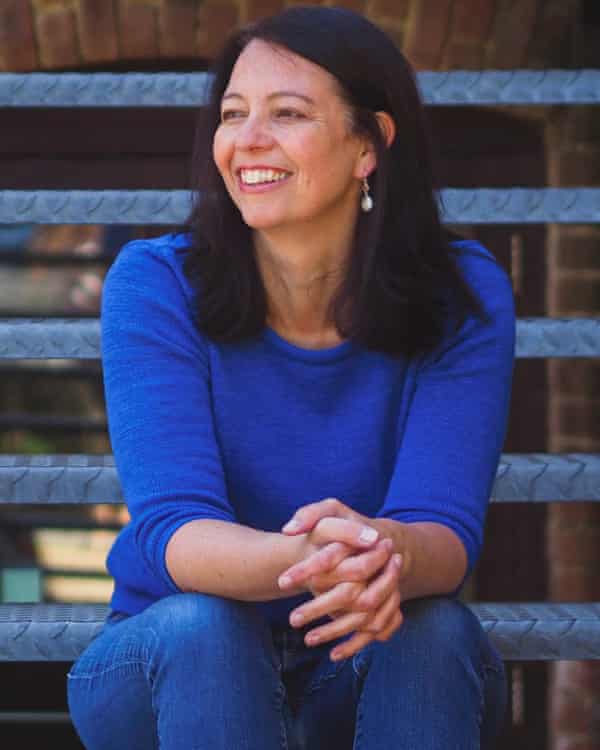There was an emotional atmosphere in a large, modern church in Guildford, Surrey, last Monday evening as members of the Vivace Chorus sang together for the first time since March 2020. Savouring their reunion, they focused on favourites such as Bach and Mozart.
“There was a real feeling of camaraderie and connection,” said Gill Perkins, a soprano in the amateur choir. “It’s a shared experience that we’d taken for granted before, and then missed so much. One person said she felt she’d got her life back.”
The choir was delighted to resume rehearsals for concerts and performances this summer. After 14 months on Covid-enforced Zoom, the Vivace Chorus was back in business.
At exactly the same time almost 200 miles to the north, the Rotherham Tuneless Choir was also meeting. Composed of people who love singing but aren’t very good at it, the choir was thrilled to find five new members as well as local MP Alex Stafford at its first session in months.
“It was a really good night. People were glad to be back and were saying they can’t wait until next week,” said choir leader Becky Power. The choir belted out Que Sera Sera and the Dave Clarke Five’s Glad All Over.
But the next day brought crashing disappointment to the Vivace Chorus, the Rotherham Tuneless Choir and thousands of other amateur choirs across England.
Without warning, the government updated its guidance to say that, in England, non-professional singing could take place only in groups of up to six people indoors. The new rules – published the day after a significant relaxation of Covid restrictions, and contravening musicians’ expectations – were met with anger and despair.
“I was absolutely fuming,” said Power. “It’s contradictory and confusing and has completely messed up all the hard work we put in.” Perkins reported a “deluge of anger and upset”.
Anna Lapwood, director of music at Pembroke College, Cambridge, tweeted: “This is ridiculous and another blow to our industry … why are people allowed to eat in crowded restaurants when choirs can’t meet socially distanced in well ventilated rooms?”
Glen Dempsey, assistant director of music at Ely cathedral, posted: “10,000 football fans singing in football stadiums, dozens singing in pubs, yet only six non-professionals are allowed to sing in our cavernous cathedrals, churches, theatres and concert halls.”
Dempsey told the Observer it was the latest blow for professional musicians who run amateur choirs or are hired to perform with them. “It’s difficult to see what the dangers are regarding amateur singers that don’t apply to professional singers.”

He was forced to cancel a rehearsal for the cathedral’s 60-strong voluntary choir on Friday. “It’s back to Zoom,” he said. “It seems that every other bit of society is opening up but choirs are facing a retrograde step.”
The Royal Choral Society, one of the country’s oldest and largest amateur choirs, is continuing rehearsals for a performance of Handel’s Messiah at the Royal Albert Hall in London next weekend. “Our view is that, although our choir is made up of amateur singers, it is operating in a professional environment with a paying audience and is therefore within the guidelines,” said general manager Richard Reeves. “We stand 100% with other singers who are gutted by the government advice, and we will be pressing for it to be changed.”
The Association of British Choral Directors said on its website that the advice “diverges from what we had been led to believe, that non-professional music activity would return outdoors and indoors in England from 17 May, without limits on numbers other than those dictated by the size of a venue (in order to allow for social distancing)”.
“This update was deeply disappointing for all of us who have spent so much time carefully planning indoor rehearsals and we are concerned that the guidance for amateur singing imposes unreasonable and unworkable restrictions that other leisure and amateur activities are not currently facing.”
In the Commons, culture secretary Oliver Dowden told MPs he shared the frustration over choirs, but “the decision was made on the basis of very clear public health guidance”. Concerns have been raised over the past year that singing may increase transmission of the virus.
Bob Chilcott, a choral composer, conductor and singer, said the restrictions had no solid evidential basis. “I think what’s really upset people in the artistic community is the complete inability to engage with the fact that we have a strong cultural life in this country and we have to keep it alive.”
Music was “not seen as a priority” despite the fact that about 2.2 million people are members of about 40,000 amateur choirs, he added.
Perkins said: “We don’t have as powerful a voice as football, we don’t have huge economic power, and it doesn’t feel like we’re being listened to.”
Dowden said he hoped full rehearsals and performances could resume on 21 June, assuming the final stage of the roadmap is implemented.
In Scotland, amateur choirs can meet with social distancing and other measures in place. In Wales, indoor rehearsals of up 30 people are permitted. In Northern Ireland, from Monday groups of up to 15 may rehearse indoors without special precautions, and risk assessments must be carried out for bigger groups.
This content first appear on the guardian
